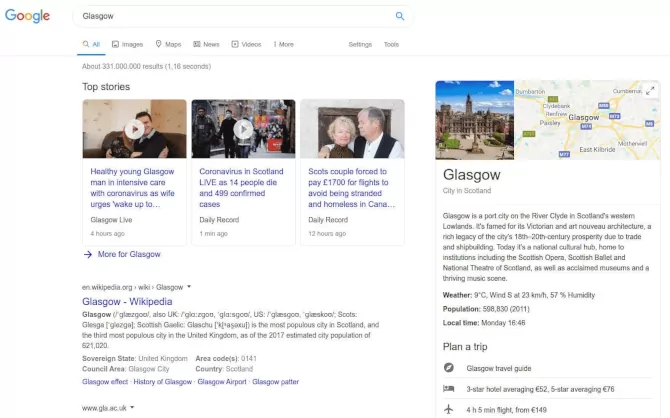Contents
There are three Core Web Vitals:
Largest Contentful Paint (LCP): This gauges how long it takes for the biggest content component to appear on a page.
First Input Delay (FID) is a metric used to gauge how quickly a user may interact with a page once it has loaded.
Cumulative Layout Shift (CLS) is a metric that quantifies how much visual material moves around on a website as it loads.
You can follow these techniques to improve your website’s Core Web Vitals in Glasgow, Scotland:
1, Improve your image quality because they are a major cause of slow page loading. Utilize a responsive picture format and reduce the file size of your photographs to optimize them.
2. Minify your CSS and JavaScript: The time it takes for your websites to load can be slashed by minifying the JavaScript and CSS code.
3. Consider using a content delivery network (CDN): By delivering your pages from servers closer to your users, a CDN can aid in accelerating page load times.
4. Utilize a caching plugin: A caching plugin can assist in the storage of static content on your server, enhancing the speed at which your pages load.
5. Test the effectiveness of your website: You may check the functionality of your website using a number of tools, like Google PageSpeed Insights and WebPageTest.
Here are some extra pointers for enhancing your website’s Core Web Vitals in Glasgow, Scotland, in addition to the ones mentioned above:
1. For your website, use a minimal theme or template.
2. Limit the number of plugins you use.
3. Place your website on a reliable, and quick server.
4. Update the code on your webpage.
5. Test the functionality of your website frequently.
If you need some help to improve your website’s Core Web Vitals, I could do a performance audit, recommend specific changes, and implement those changes for you.
Enhancing your website’s Core Web Vitals is a crucial first step in raising its overall performance and search engine position.

About Glasgow
Glasgow, tucked away on the banks of the Clyde River, is a lively representation of Scotland’s dynamic modernity and rich historical legacy. Glasgow, the biggest city in Scotland, skillfully combines the legacy of its industrial past with the modern cultural scene to provide visitors with a diverse experience that leaves a lasting impression on everyone who visits.
Glasgow’s history, which dates back to prehistoric times, is a tapestry woven with tales of victory, adversity, and resiliency. Fueled by its shipbuilding, trading, and manufacturing industries, Glasgow, a modest fishing community at first, became into a major force throughout the Industrial Revolution. The city’s famous buildings, which range in style from Victorian opulence to cutting-edge modern architecture, provide as a physical reminder of its colorful history.
Glasgow has a fascinating and varied cultural scene. The revered corridors of the Kelvingrove Art Gallery and Museum, which is home to a vast collection of works of art spanning centuries, are a haven for art lovers. Music lovers swarm to the city’s storied venues, where the strains of experimental jazz, folk music, and indie rock echo into the night. Theater enthusiasts can indulge their passion in the world-famous Scottish Opera or witness a ground-breaking show at the Tramway, a center for cutting-edge modern dance and theater.
Without indulging in Glasgow’s delectable cuisine, a trip there would not be complete. Glasgow offers something for every taste and inclination, from Michelin-starred restaurants pushing the boundaries of gourmet to warm, welcoming pubs offering up substantial traditional fare. Explore the city’s diverse neighborhoods on a culinary adventure to discover hidden treasures and must-try restaurants around every corner.
Glasgow’s friendly and hospitable attitude is what makes it unique. Known for their warmth and hospitality, Glaswegians welcome guests with open arms and a desire to share their passion for their city. Whether starting up a chat in a busy café or getting advice from a local bartender, visitors are soon enchanted with Glasgow’s alluring atmosphere.
One thing endures despite Glasgow’s ongoing evolution and adaptation to the demands of the twenty-first century: its unyielding spirit and limitless energy. Glasgow is a city that respects its history while looking to the future. It has hosted major international events like the Commonwealth Games and is a leader in sustainability programs meant to protect the area’s natural beauty.
Glasgow is more than simply a city; it is a vibrant, living example of the human spirit’s resiliency and the lasting strength of community. Glasgow never fails to create a lasting effect on anyone who have the pleasure of experiencing its beauty, whether strolling along the banks of the River Clyde or immersing oneself in its flourishing cultural environment.
